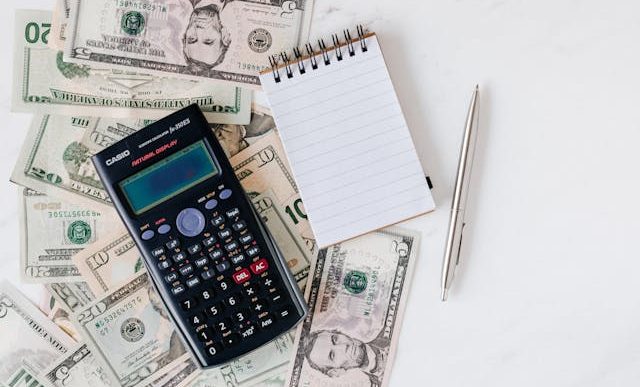Debt consolidation can feel like finally catching your breath after years of juggling too many payments. It means combining several debts into one simple loan, often with better terms and a lower interest rate. That single change can turn chaos into something calmer and more predictable. Instead of facing five different due dates and several high-interest cards, you focus on one monthly payment that actually feels possible.
It doesn’t make the debt disappear, but it sure makes paying it back more manageable. It’s about getting a bit of control again and seeing a path forward instead of a wall of bills. For many, it’s the first step toward real financial peace.
Then comes the question that almost everyone asks early on: Can I still use my credit card after debt consolidation? The answer depends on the type of loan and how disciplined someone stays after combining their debts. Using cards freely again can undo months of progress, but handling them wisely keeps the benefits intact.
The Real Benefits of Consolidating Debt
The biggest relief that comes with debt consolidation is simplicity. One single payment makes it easier to plan and cuts down the stress of tracking multiple bills. It also reduces the fear of forgetting a due date or paying one card late. That peace of mind alone can make a big difference.
Another advantage is the chance to save on interest. Credit card debt builds fast, and before long, it feels like all the payments go toward interest instead of the balance. A good consolidation loan usually comes with a lower rate, meaning more of the money actually chips away at the debt. Over time, that can shorten repayment and save hundreds, even thousands.
There’s another quiet benefit: credit scores can start to improve. Consistent on-time payments help rebuild trust with lenders. When credit utilization drops, that positive momentum shows up in your score. It’s slow progress, but it’s steady and real.
Avoiding Common Traps After Consolidation
Debt consolidation offers a clean slate, but it only works if spending habits change. The biggest trap is using credit cards again, like before. It might feel safe now that payments are manageable, but those small swipes can grow into the same problem all over again.
A better approach is to keep one credit card open for emergencies or necessary purchases, while leaving the rest alone. Canceling every card isn’t always smart, but setting boundaries around use can help keep things under control.
A written budget can make this even easier. Listing expenses and tracking income every month helps prevent old habits from creeping back. Knowing where money goes builds awareness, and awareness creates control.
Smart Credit Card Strategies for Long-Term Success
Credit cards aren’t the enemy; how they’re used determines everything. When handled carefully, they can build credit, earn rewards, and even make life more convenient. After consolidation, the goal is to rebuild trust not just with lenders, but with money itself.
Tips for Responsible Credit Card Use
- Pay the balance in full every month to avoid interest.
- Use less than 30% of the available credit limit.
- Check statements regularly for errors or extra charges.
- Avoid applying for too many new cards, as it can hurt credit scores.
- Use rewards wisely, spending only on things already planned in the budget.
These small habits make a huge difference over time. They build confidence and show that credit cards can serve as tools, not traps.
Building a Stronger Financial Foundation
Debt consolidation works best when it becomes part of a bigger plan. Setting clear goals, such as paying off the loan early or saving for emergencies, helps maintain high motivation. Every payment brings you closer to the finish line.
It also helps to prepare for unexpected expenses. Life happens, and when it does, having even a small emergency fund can prevent the need to use credit again. It doesn’t need to be large at first. Even a few hundred dollars in savings offers security and peace of mind.
Learning more about money, interest rates, credit scores, and loans creates confidence, too. The more you understand how these systems work, the easier it becomes to make smart choices. Knowledge builds strength, and that strength protects your progress.
Maintaining Discipline After Consolidation
The real test comes after consolidation. Once bills feel lighter, temptation often sneaks back in. It’s easy to think, “I’ve got room now; one purchase won’t hurt.” But that’s how old habits start returning. Staying disciplined is what keeps the progress from slipping away.
Consistency helps most. Setting reminders for payment dates, checking balances weekly, and reviewing spending can keep everything on track. Some people prefer using small goals, such as celebrating when a third of the debt is paid off or when they reach six months without missing a payment.
It’s also important to remember why this journey started. Every payment isn’t just money; it’s a reminder that control is possible again. That feeling grows stronger with every month of progress.
Debt consolidation and mindful credit card use are about freedom, not restriction. They give structure, relief, and a real plan for the future. The goal isn’t to quit using credit, but to handle it wisely and confidently. Small, consistent habits can change everything. Many people still ask, Can I still use my credit card after debt consolidation? The truth is yes, but only with awareness and control. When cards are used intentionally, they can actually help maintain the progress made through consolidation. Debt consolidation isn’t just about paying off what’s owed. It’s about rewriting your financial story. True peace comes when money finally feels like something you manage, not something that manages you.














